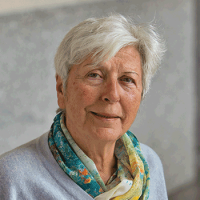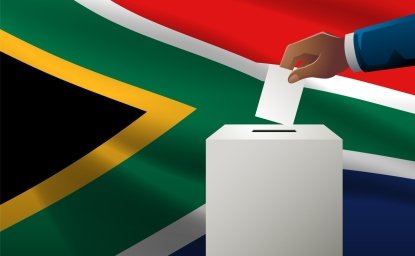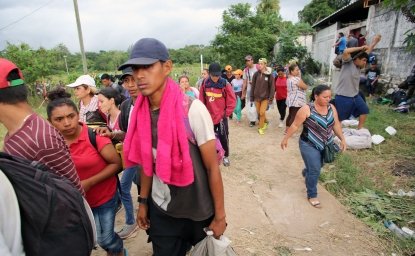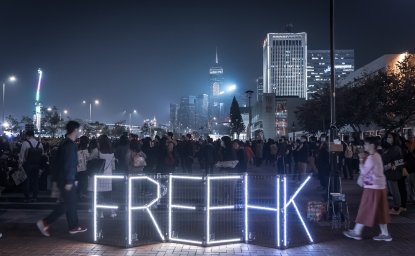The Egyptian National Dialogue, announced almost a year ago by President Abdel Fattah al-Sisi, will be launched on May 3, 2023 after extensive preparations that guarantee that the so-called dialogue will be firmly controlled from the top and that no voices will be raised that the government does not want to hear.
National dialogues have become increasingly popular recently as a way of breaking political impasses and allowing conflict-ridden countries to move toward domestic reconciliation. Numerous international organizations and NGOs devoted to conflict resolution have published “lessons learned” studies of national dialogues as well as handbooks to guide organizers of future ones. National dialogues do not always—or even often—succeed in achieving reconciliation, but they at least try to bring together conflicting groups to discuss their differences.
A top-down dialogue
The national dialogue that will take place in Egypt does not follow the usual pattern, either in format or in goals. Although called a national dialogue, suggesting an exchange between at least two sides, participation appears limited to a narrow range of people and groups essentially aligned with the government. And the stated goal is not to reconcile adversaries, but to issue recommendations directly to the president. It seems improbable that the tightly controlled body and strictly choreographed process will generate new ideas and help the country overcome political and economic stagnation.
From the outset, the planning has been closely controlled from the top by an appointed 19-member board of trustees that prescribed the structure of the dialogue, the number of the committees and subcommittees within which discussions will take place, who will lead each of them, and the topics they will discuss. A complete list of participants has not been announced yet, but the emphasis seems to be on personalities rather than organizations. Dissidents, particularly Muslim Brothers whom the Egyptian government considers terrorists, cannot participate in the dialogue.
All committees and subcommittees will present their recommendations to President Sisi personally. In fact, even before the dialogue opened, the board of trustees recommended to the president that all elections and referenda be placed under the direct supervision of the judiciary, under the slogan “one ballot box, one judge.” This system was used before, but it is not clear what gives the board of trustees the authority to recommend it be reinstated. However, Sisi accepted the recommendation and sent it on to the parliament to act upon.
The National Dialogue is in the hands of its board of trustees that appears to have the power to do what it wants—as long as Sisi agrees.
The task of organizing the dialogue was assigned to the National Youth Conference, a non-representative body set up by President Sisi and managed by the National Training Academy. There is no evidence at this point that these entities are still directly involved. The National Dialogue is in the hands of its board of trustees that appears to have the power to do what it wants—as long as Sisi agrees.
Preparations have stretched on for almost a year and, judging from media reports, they have proceeded in fits and starts. There was a lot of activity over the summer, as the board set up three committees, respectively on political, economic, and social issues, divided each into subcommittees, and appointed rapporteurs for them all. The process then slowed down until the end of the year, when the trustees announced that 113 topics would be discussed in public, unless otherwise announced. In January 2023, an announcement that the dialogue would start within days was followed by silence until the spring, when May 3 was declared the official starting date.
A slumping economy
There are two reasons for this one-year delay between Sisi’s announcement of the National Dialogue and its actual opening. The first one is that the government wanted to be sure that it would follow a predetermined course and would not become a free-for-all. The committees and subcommittees will give Sisi the recommendations he wants, so he can present to the country an agenda of his own choosing, claiming it emanates from the dialogue. But there may have also been a second reason, suggested by the periodic slow-downs in the preparations: the government may have had doubts at times about the wisdom of holding a national dialogue during a difficult period, marked by severe economic deterioration. In the last year, the government has been forced to devalue the currency repeatedly, halving its value to 32 Egyptian pounds to the dollar by January 2023, with further devaluations expected.
When President Morsi was ousted, Gulf countries hastened to support the military government, depositing billions of dollars in the Egyptian central bank to shore up its reserves.
The Egyptian economy has been weighted down for a long time by a high rate of population growth, which anomalously increased again after a slight decline. The 2011 uprising and the two chaotic years that followed worsened the situation. When President Mohammed Morsi, a Muslim Brother, was ousted in a coup d’état in 2013, Gulf countries hastened to support the military government, depositing billions of dollars in the Egyptian central bank to shore up its reserves. The Gulf oil producers’ aid to Egypt since 2011 is estimated at more than $ 90 billion, in the form of grants or deposits in the Egyptian Central Bank. Of the total amount, $22 billion was pledged in April 2022, in response to an urgent plea for help from Egypt.
Even this aid was not enough for the Egyptian economy to recover. The chronic problems coming from a combination of population growth outstripping resources and the state’s and the military’s domination of the economy, the COVID-19 crisis, and the war in Ukraine prevented economic recovery. The war between Russia and the Ukraine hit Egypt particularly hard: the country imports about 60 percent of the wheat it consumes, and most of it comes from Russia and Ukraine.
The deteriorating situation led the Egyptian government to sign a 46-month, $3 billion stand-by agreement with the IMF in December 2022, which had been under discussion for years. While the amount is small compared to the aid provided by Gulf countries, an IMF agreement, which requires reforms, usually unblocks support from other sources. The agreement included a commitment by Egypt to open up more of its economy to the private sector, but the implementation of the reform has been proceeding very slowly—according to some analyses, it has not been proceeding at all. This calls into question the future of the IMF support for Egypt.
Doors shut
So far, the IMF agreement has not unblocked new aid for Egypt. On the contrary, even the Gulf countries are pulling back. At the Davos Economic Forum in January 2023, the Saudi minister of finance announced that his country would not continue providing unconditional aid and other Gulf countries sent similar signals.
This led to the publication of an incredibly insulting and ill-timed opinion piece by the editor of the Egyptian state-owned newspaper Al-Gomhurya, stating that “Those barefoot and naked, who wore the most luxurious clothes recently, should not attack Egypt. States whose age does not exceed the age of my youngest son do not have the right to talk about Egypt except with politeness, reverence and respect.” Needless to say, such hubris further angered Gulf counties. Trying to control the damage, mend relations, and keep aid coming, Sisi has been lavishing extravagant praise on Saudi Arabia, the UAE, and Qatar in recent weeks, but the problem is too deep and complex to be erased by a charm offensive.
Recent visitors to Egypt depict a subdued, downcast population, focused on surviving in the midst of extremely severe inflation.
This is the situation prevailing in Egypt as the National Dialogue is about to start. The country’s economy is teetering and the population is suffering, although there is no evidence at this point that the economic discontent is likely to lead to another uprising, as it did in 2011. Recent visitors to Egypt depict a subdued, downcast population, focused on surviving in the midst of extremely severe inflation.
The forthcoming dialogue could have been an opportunity for Egypt to do some serious thinking about the economic problems it faces and to reformulate its policies—I will not even mention a discussion of political reform, so far is it from the realm of possibilities. But what we can glean from the preparations so far suggests that the dialogue will not generate new ideas and new policies. Instead, it is all too likely to reaffirm the path adopted by Sisi since 2013, which is not the sole cause of Egypt’s economic crisis, but it certainly contributes massively to it. The door to an honest discussion appears to have been closed even before the meetings get underway.
The views expressed in these articles are those of the author and do not reflect an official position of the Wilson Center.






